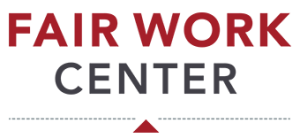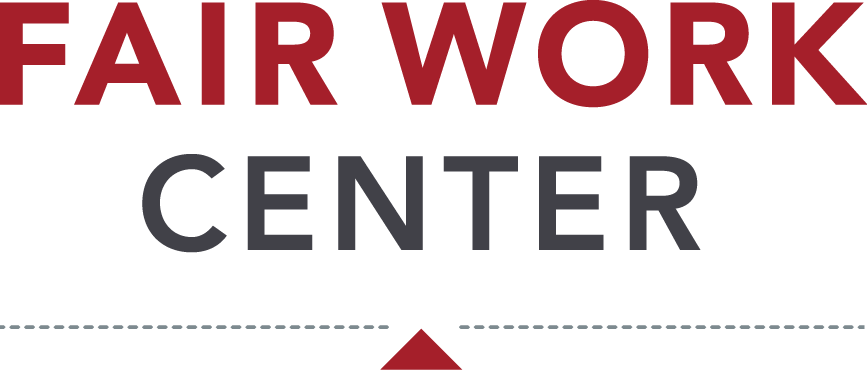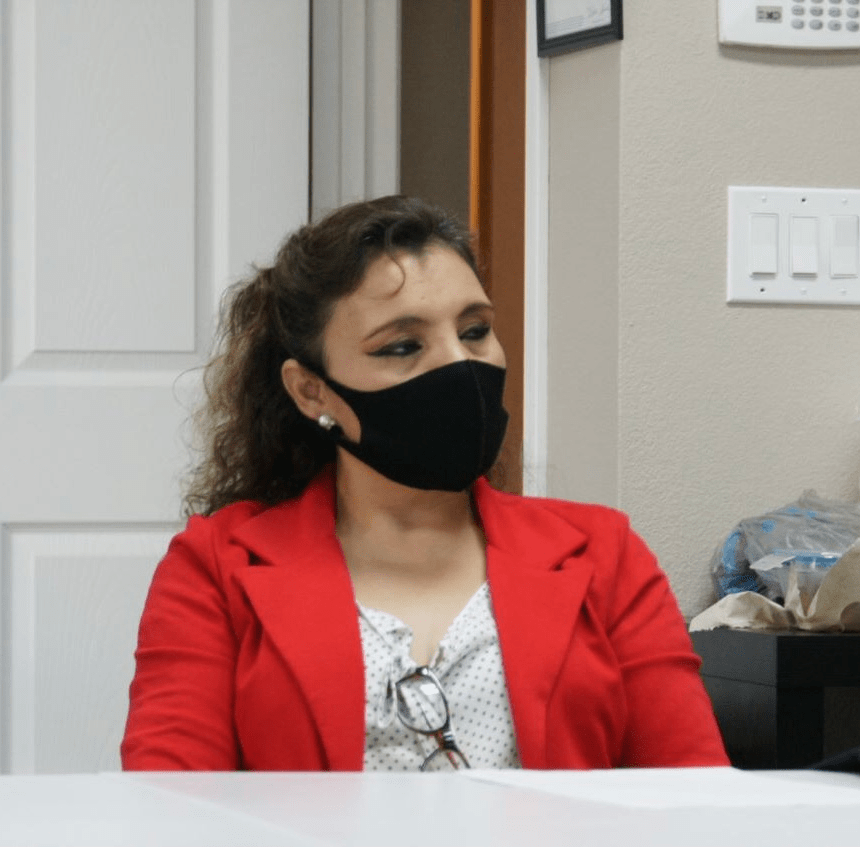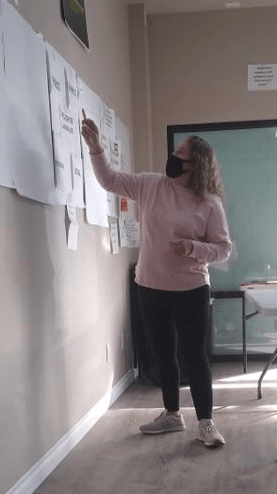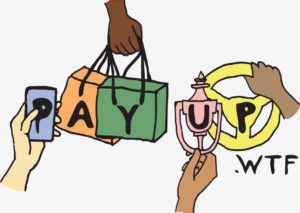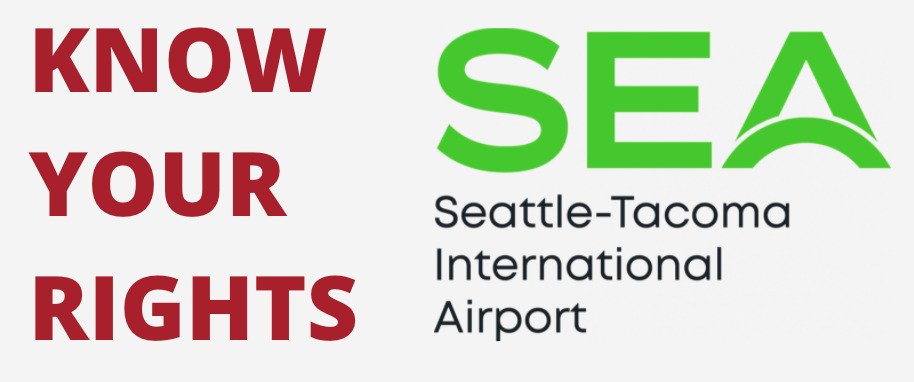Help us build an even stronger worker movement in 2021
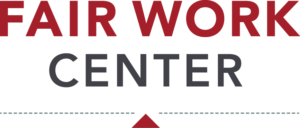
In this challenging year, your support has helped us respond to this crisis, win new workers’ rights, and continue building worker power.
The economic and public health crisis has hit workers hard. More than a million people across WA lost work, and hundreds of thousands are still unemployed. Workers in essential industries have often faced additional risks without adequate safety equipment or access to paid sick leave. 2.2 million people in Washington are struggling to buy groceries & make ends meet. And the crisis is deepening racial inequities: people of color are far more likely to be classified as essential and unable to work from home, are more likely to have lost work, and are less likely to collect unemployment benefits after losing work.
In response, we shifted our priorities to address the urgent needs revealed by this crisis. We helped launch the push for a moratorium on evictions and utilities shut-offs to prevent thousands from losing access to running water or even losing their homes. We’ve held dozens of COVID health & safety trainings to help workers understand and enforce their rights. And we helped pass Seattle’s new Jumpstart tax, requiring the biggest companies paying the highest salaries to pay a small tax to fund relief programs like affordable housing and grocery vouchers.
Here are 11 victories we accomplished together this year:
- We mobilized quickly to provide workers with accurate, up-to-date information about COVID, unemployment insurance, and workers’ rights during the pandemic. Our COVID resources website has been viewed by more than 25,000 people so far.
- We helped lead the coalition that won a $40 million fund for undocumented immigrant workers, who are excluded from federal relief programs and unemployment insurance, and we’ve worked to get that money out the door and into the hands of 38,000 people across the state. But we know one-time cash assistance isn’t enough: that’s why we’re now fighting to create an emergency program that provides undocumented workers who have lost work with weekly income support for a length of time similar to unemployment insurance.
- We’ve been leading the call to address the failure in WA’s unemployment system. In July, unemployed workers held a virtual Speak Out rally to share the stories of workers who’ve been left behind & left out of the system. We’ve released several widely-circulated reports showing how the system is designed to deny claims rather than pay benefits. We’re relentlessly drumming up coverage in the media to push elected officials to take action and get unemployed workers the money they need. Public pressure is mounting on ESD to pay benefits more quickly, the state auditor’s office is investigating the department, & state legislators are considering reforms to the system.
- When fruit packing workers in Yakima went on strike this summer, we were there alongside them on the picket lines, providing legal help to 127 workers as they filed health & safety complaints with the Dept. of Labor and Industries. And through our Promotores program this fall, we trained more than a dozen workers to be experts on their rights and conduct trainings in their communities.
- Seattle gig delivery workers with our Pay Up campaign won the first-and-only hazard pay law anywhere in the country during the pandemic, which ensures that drivers on apps like DoorDash, Postmates, and Instacart receive an additional $2.50 per delivery. We made sure that law is being enforced: 1000s of gig workers received over $360,000 from companies after the Seattle Office of Labor standards found that gig companies weren’t complying with the new hazard pay law. It’s the first-ever government labor standards enforcement action to actually move money from gig company corporate bank accounts into gig workers’ pockets.
- Seattle gig workers also won a first-of-its-kind paid sick days ordinance, which guarantees paid sick time for food delivery drivers & TNC drivers on Uber & Lyft. This measure protects public health by making sure gig workers don’t have to choose between putting food on their table and staying home when they’re sick.
- Black gig workers with our Pay Up campaign led the #AppBlackOut in July, a national weekend of action calling for gig companies to enact specific racial equity policies, including a uniform pay standard to mitigate the impact of racism in tipping, an end to the deactivation of workers based on customer reviews, and an end to using criminal history as a reason for deactivating or refusing to hire workers.
- Workers across industries organized to strengthen health & safety measures. Restaurant workers wrote an open letter calling on state leaders to prioritize worker safety, provide direct relief to workers, and fix our state’s unemployment system. Strippers led the new Adult Entertainment Advisory Committee, which submitted safety policy recommendations to the state legislature in November. And domestic workers are laying the groundwork to expand access to paid sick time.
- We launched two new industry-specific Know Your Rights training programs in Yakima and at SEA Airport in SeaTac, which are developing dozens of worker leaders who are experts on their rights and trusted sources for this information in their workplaces.
- Our legal clinic helped workers recover nearly $150,000 in stolen wages during the pandemic and conducted hundreds of legal consultations with workers. We did policy research to help develop a proposal for an income support system for undocumented workers. We launched a new partnership with the WAISN hotline to connect even more immigrant workers throughout the state with free legal advice. And our team filed two lawsuits against restaurants to make sure workers are paid the money they’re owed.
- And we made sure that politicians and the news media heard what we have to say about the issues that impact workers: everything from our demands to address the crisis in our state’s unemployment system, to working outdoors in dangerous wildfire smoke, to the restaurant industry’s irresponsible attempt to overturn the public health order banning indoor dining.
| All these accomplishments take resources. Many of us are struggling to pay rent this month, but if you’re able to chip in a monthly contribution of just $5, $10, or $15, it’ll go a long way to winning even more victories and leading a just recovery in 2021. |
Our movement is building momentum. We have a strong track record of winning, and big plans to make sure we keep that up in 2021. But we’re up against wealthy corporations who are spending tons of money to push their same agenda of more for them and less for the rest of us. We’ll keep fighting back—and we need your help to do that.
Click here to renew your support for Fair Work Center. Even $5 makes a big difference and helps us build strength for the long haul.
In solidarity & gratitude,
—All of us at Fair Work Center
